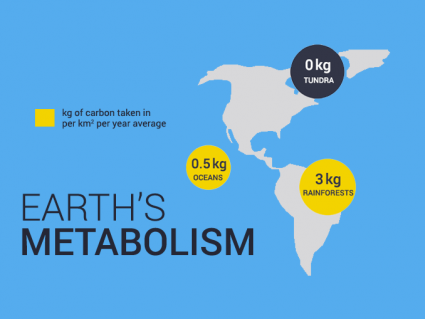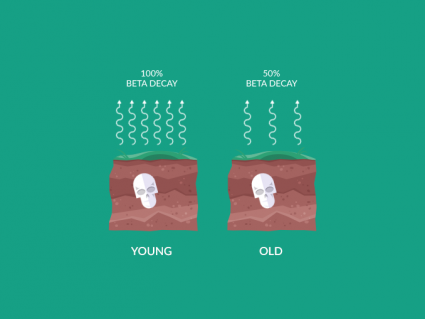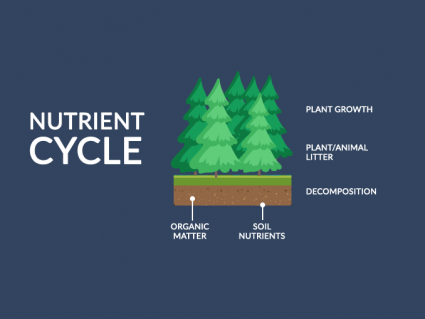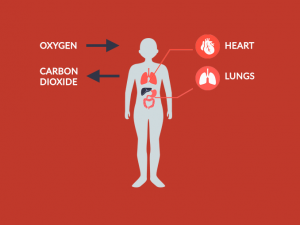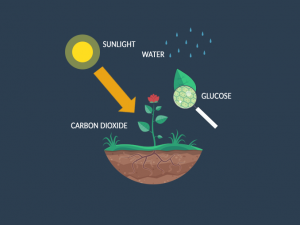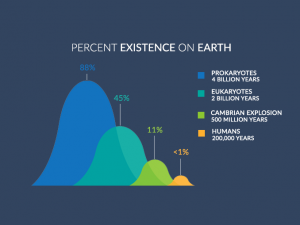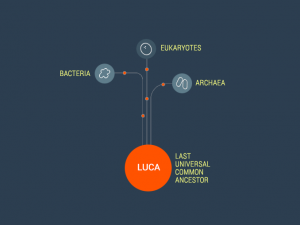Human Cells vs Bacteria: Microbiota in Your Body
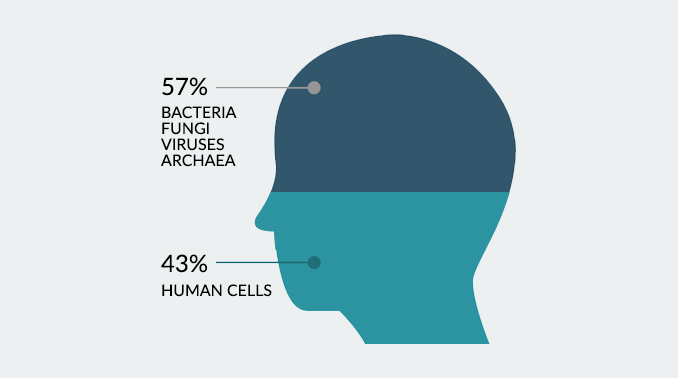
Human Cells vs Bacteria
Your body is 90% bacteria. So that means by 10 to 1, colonies of bacteria outnumber your human cells. Put it another way: we are borderline bacteria.
But there shouldn’t be any negative connotations to our bacteria-dominated bodies. Bacteria break down sugars, digest food, and protect against infections.
And the reason is that your body functions best by evolving with both human cells and bacteria. You wouldn’t be who are you today if it wasn’t for the underappreciated bacteria.
But lately, we’ve recounted only to find that it’s more like a ratio of 6 to 4. Instead, 57% of your body is bacteria, fungi, archaea, and viruses. And the remainder is about 43% human cells.
A Healthy Microbiome
100 trillion microbes reside in your body. They live inside your body such as in your colon, gastrointestinal tract, and lungs). And they live on the exterior of your body such as on your skin, mouth, naval, and underarms.
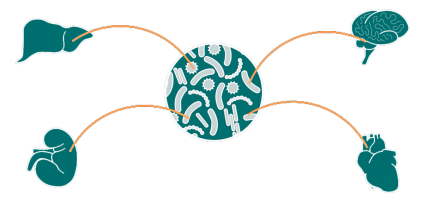
For example, prokaryotic bacteria interact with cells in your intestinal tract. They live in a delicate balance helping cells absorb energy, strengthen the immune system, and protect against infections.
If one bacteria type gets out of balance, it begins to outnumber others. In this case, doctors provide antibacterial medicine because you feel ill from the imbalance. Antibacterial medication like amoxicillin reduces the problematic bacteria and has an overall regulating effect on the number of bacteria.
But anti-bacterial medicine can have a disturbing effect on the microbiome and cause more serious problems. This is why treating imbalances with probiotics has become a major field of research. These beneficial microbes assist in treating disease.
Microbiota in Your Body
The human microbiome is a collection of microorganisms living in our bodies. These organisms help to eradicate disease and keep us healthy, but only if they are kept in balance.
Maintaining a balanced and diverse human microbiome is crucial for overall health, as it plays a vital role in digestion, the immune system, and even mental well-being.
Disruptions in this microbial balance can lead to various health issues, emphasizing the importance of nurturing a harmonious relationship with the microorganisms that inhabit our bodies
As such, it’s important to understand what the microbiome is and how it has changed over time. If you have any comments or questions, don’t be shy and use our comment form below.

